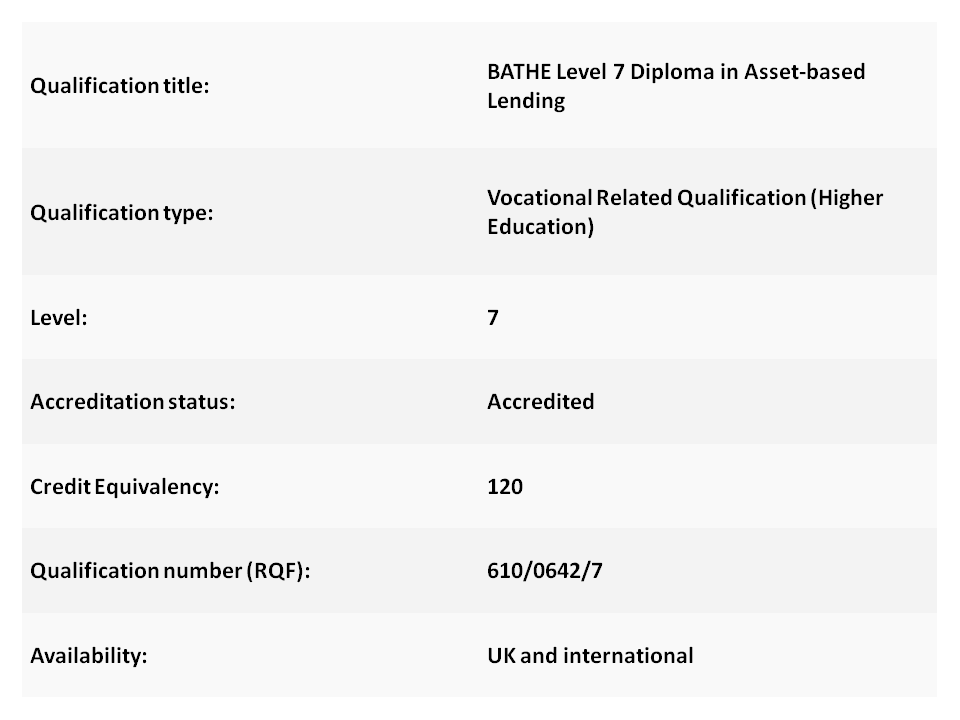Specifications

The qualification has been created to develop the business Asset-based Lenders of today and the future and to continue to bring recognition and professionalism to the Asset-based Lending management sector. It will enable learners take the opportunity to learn a great deal from learning programmes that will provide relevant new skills and qualities.
It is envisaged that such programmes will encourage both academic and professional development so that learners move forward to realise not just their own potential but also that of organisations across the asset-based lending sector.
The Level 7 programme will require learners to evaluate, challenge and synthesise a wide range of current risk management tools, techniques and models. The emphasis placed on current risk management concepts and models is on those that are relevant to the 21st century business banking environment and context.